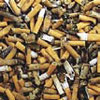Firms in clean city challenge
Clean City Partners, a pilot programme launched this month in the City Mall, has been developed by the City Council to help reduce litter in the central city.
The aim is to work towards a litter-free central city. That will enhance the area's attractiveness to shoppers and business operators and reduce the amount of litter flowing through the stormwater system and into the Avon River.
"Every citizen should take ownership of ensuring a clean city," says Councillor Barry Corbett. "The Clean City Partners scheme is a positive step towards this."
Clean City Partners is based on a successful Sydney programme which is helping to keep the Australian city's pavements and streets litter free.
In Christchurch the programme has begun with a six-month trial in a small target area around the City Mall. It is hoped the programme will bring more focus to the good work already being done by many businesses and retailers in the area. If the trial succeeds, the programme will continue and the area it covers will be expanded.
This initiative was started in response to concerns that litter is now in more places, more often. Research suggests this is a result of our changing lifestyle; with people being busier, we tend to snack more and rely on fast food which is a high generator of litter.
Smoking is also a big part of the problem; apart from killing 4500 New Zealanders a year, smokers' discarded cigarette butts have become the most common litter item.
Becoming a Clean City Partner is voluntary and means the business is willing to help teach its staff and customers how to actively reduce litter outside their place of business.
Being part of the partnership can be as easy as displaying educational material and helping to keep the frontages of businesses litter-free between Council cleaning times. In return, the Council will provide partner businesses with a brush and shovel and rubbish bags in which to dispose of the rubbish they collect off the street.

Cigarette butts are a big part of the problem; they are unsightly and bad for the environment.
|